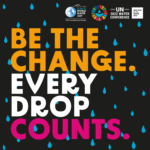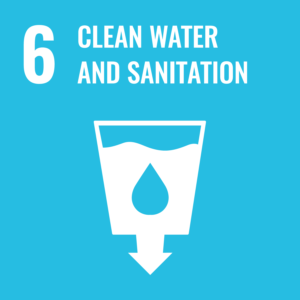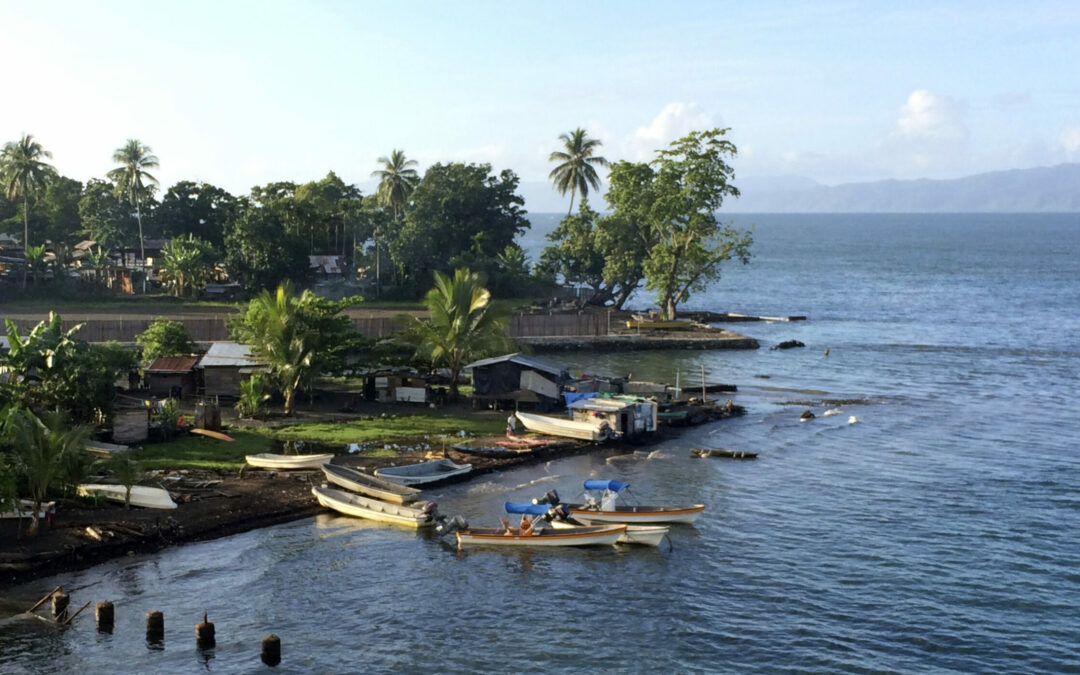As we mark World Water Day 2023, Alinea’s Asia-Pacific team covers how creative and inclusive partnerships can get Sustainable Development Goal 6 back on track. By Georgia Naughton-Watt and Bernadette Whitelum.
Access to safe and inclusive water, sanitation, and hygiene (WASH) is essential to the health, nutrition, dignity, and livelihoods of all people. Yet for at least one month each year, 3.6 billion people worldwide lack access to safe water – a number expected to exceed 5 billion by 2050. Women and people with disabilities, especially in remote areas, experience a myriad of barriers in accessing safe water and sanitation.

World Water Day 2023 spotlights the urgency of addressing inequalities in access to WASH. Globally, we need to quadruple our efforts to achieve Sustainable Development Goal 6 by 2030: To ensure availability and sustainable management of water and sanitation for all.
Climate change is making this challenge harder, pushing the goal further out of reach. The increasing frequency and severity of climate-induced natural disasters threaten critical WASH infrastructure and services. Water and disasters are inextricably linked. Too much, or too little, water cause almost 75 per cent of humanitarian disasters – risking damage to waterpoints, sewerage systems, and toilets, as well as contaminating water sources and isolating communities from water supply and services. This damage can take years to restore, undermining capacity for communities to practice good hygiene and contributing to the spike in water-borne and communicable diseases often seen following disasters. Women, children under 5 years old, and people with disabilities often experience enhanced vulnerabilities to the effects of disasters and water insecurity.
Access to WASH and disaster-resilience
Concerted action by governments, private sector, civil society, and communities is needed to accelerate efforts to achieve SDG 6, and ensure steps forward can withstand climate change and natural disasters. Ensuring access to WASH is critical both in the immediate aftermath of disasters, and as part of efforts to build community preparedness and disaster resilience. Funded by the Australian Government, the Australian Humanitarian Partnership’s Disaster READY initiative strengthens partnerships between country National Disaster Management Offices, civil society, faith-based organisations, communities, and INGOs to improve WASH for communities across the Pacific – and it is proving a successful model. For example, in Fiji, the Disaster READY team trained and registered more than 300 volunteers under a Community Volunteer Mobilisation Scheme. In the wake of Tropical Cyclone Harold, they were ready and distributed WASH and agriculture kits to villages across Fiji, including to communities in locations that were otherwise inaccessible.
Locally-led solutions and inclusive water partnerships are also proving effective in Timor-Leste. The Australian Government-funded PARTISIPA program is working through partnerships and community-driven approaches to improve the resilience of urban and rural WASH infrastructure. In 2021, Cyclone Seroja caused devastating floods, damaging much of Dili’s major water supply infrastructure. In response, PARTISIPA worked with the newly-established water authority BTL and Engineers without Borders to build a more durable water supply system – strengthening resilience of physical infrastructure, and operational and maintenance capacity.
 Potential in partnerships
Potential in partnerships
Creative and inclusive partnerships hold the key to getting SDG 6 back on track. This is essential to ensuring the right solutions for the challenges experienced by communities in different locations and contexts.
Partnerships can:
Identify innovative and sustainable solutions;
Overcome critical financing gaps; and
Ensure the benefits of improved WASH are experienced by all.
Importantly, water sector projects must meaningfully engage women, people with disabilities, and other marginalised groups to address their diverse WASH needs and challenges. This requires going beyond inclusion at the beneficiary-level by enhancing equality in representation at all levels of WASH planning, design, management, and maintenance. Inclusive partnerships have the ability to strengthen the effectiveness of WASH interventions and harness the role WASH can play in climate resilience and disaster risk reduction.
About the Australian Government-funded Alinea Asia-Pacific programs highlighted in this article
Funded by the Australian Government, the Australian Humanitarian Partnership represents a partnership between the Department of Foreign Affairs and Trade and the Australian chapters of six leading NGOs working in humanitarian and disaster response: Caritas, Plan International, Care, Save the Children, World Vision, and Oxfam. Alinea International manages the Australian Humanitarian Partnership Support Unit, providing technical, operational, and administrative support to the Partnership.
Funded by the Australian Government, PARTISIPA is an investment in improving the access and quality of basic infrastructure and service in Timor-Leste. PARTISIPA is managed by DT Global. Alinea International manages the monitoring, evaluation, and learning unit for the program.

